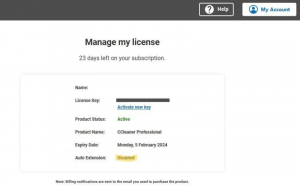How To Choose The Best Free/Paid Web Hosting Service?

best-freepaid-web-hosting-service
A web hosting service enables people and businesses to publish their websites on the World Wide Web. It entails putting the files and information for your website on a server that is online. The requested web page is sent to the user’s browser by the web hosting server when they input the URL of your website. Web hosting is essentially the framework that makes your online presence available to people all over the world.
What Factor You Should Consider?
Choosing the best web hosting service, whether free or paid, depends on your specific needs and requirements. Here are some factors to consider when making your decision:
Type of Website: Consider the type of website you’re building. Is it a personal blog, a small business website, an e-commerce site, or something else? Different hosting services are better suited for different types of websites.
Budget: Determine how much you are willing to spend on hosting. Free hosting options are available, but they often come with limitations. Paid hosting plans typically offer more features and better performance.
Performance: Look for hosting services that offer good uptime and page load speeds. Slow-loading websites can deter visitors and negatively impact your search engine rankings.
Storage and Bandwidth: Consider the amount of storage and bandwidth you need. Different hosting plans come with different resource allocations, so choose one that aligns with your website’s needs.
Scalability: If you expect your website to grow in the future, check if the hosting service allows you to easily upgrade to a higher plan or if they offer features like VPS or dedicated hosting for scalability.
Technical Support: Check the quality and availability of customer support. Good support can be crucial if you encounter issues with your website.
Security: Ensure the hosting service provides adequate security measures, such as SSL certificates, firewalls, and regular backups, to protect your website and data.
Control Panel: A user-friendly control panel, like cPanel or Plesk, can make managing your website easier. Check if the hosting service offers one and if you are comfortable using it.
Server Location: Consider the physical location of the hosting servers. Choosing a server close to your target audience can improve website loading times.
Reviews and Reputation: Research the hosting provider’s reputation by reading reviews and seeking recommendations from others who have used their services.
Terms and Conditions: Read the hosting provider’s terms of service to understand any limitations or restrictions, especially with free hosting. Some free hosts may place ads on your website or have strict usage policies.
Add-Ons and Features: Some hosting services offer additional features like website builders, one-click installations of popular CMS platforms, and email hosting. Evaluate if these extras are important to you.
Data Backup and Recovery: Determine the hosting provider’s backup policies. Regular backups are important in case of data loss or site issues.
Money-Back Guarantee: For paid hosting services, check if they offer a money-back guarantee, which can provide a safety net if you’re not satisfied with their service.
E-commerce Support: If you plan to run an online store, ensure the hosting service supports e-commerce features and secure payment processing.
Traffic Limits: Be aware of any traffic or visitor limits, especially with free hosting, as exceeding these limits could result in downtime.
Terms of Ownership: Read the fine print regarding ownership of your website and data. You should have control over your content.
Domain and Email Hosting: If you need a domain name and email hosting, consider whether the hosting service offers these as part of the package.
Once you’ve considered these factors, you can compare different hosting providers and their plans. Free hosting services may be a good starting point for small projects, but paid hosting usually offers more reliability, flexibility, and features. Be sure to choose a hosting service that aligns with your website’s current needs and future growth plans.





